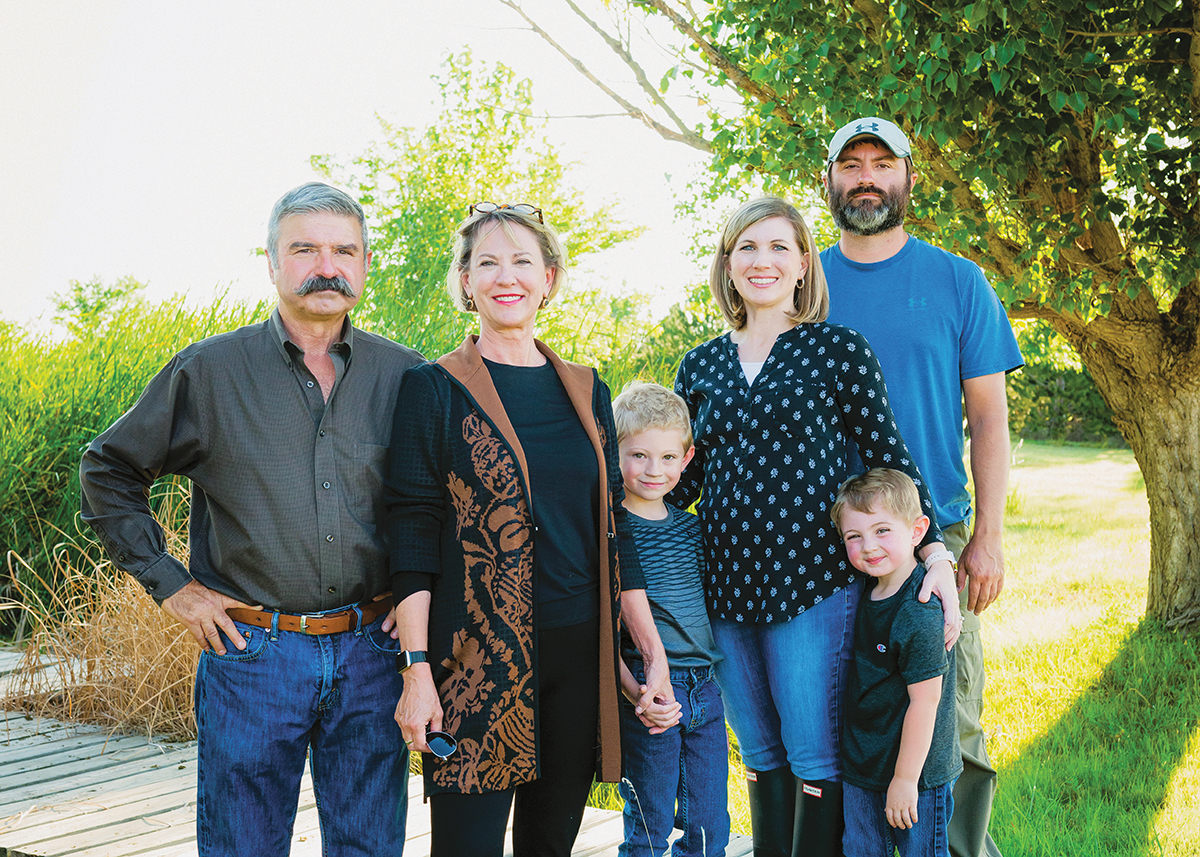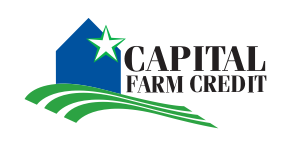The Grape Plains

Vingo Vineyards brings variety to the Texas Panhandle's crops and social scene.
There aren't many places on the Texas High Plains where you can mingle with friends and cross-country travelers over a glass of wine. But you'll find one in Dalhart at Vingo Vineyards.
The Yoder Family started the winery when they found themselves at a crossroads.
Faced with volatile prices for their commodity crops, the farmers sought ways to diversify. Any new crop would need to grow well in the area and provide dependable income on relatively few acres.
Grapes, they realized, could help sustain the farm for generations. "We've always been interested in wine," Pamela Yoder says. "Grapes are more stable than commodity crops, and we don't have to depend on the Board of Trade for pricing."
Together, Pamela and her husband, Steven, and their son and daughter-in-law, Zachary and Rinnell, have planted 31 acres of grapes since 2015. They named their winery after their farm's deep, well-drained Vingo soil.
Expanding Wine Country's Boundaries
Grapes aren't common in this corner of the Texas Panhandle, known for its beef, dairy, grain and potatoes. But that's starting to change."
At 4,400 feet, we have cooler temperatures at night," Pamela says. "Grapes like that."
The Yoders now grow two white grapes and five reds found in cooler regions, such as Austria's gruner veltliner and the Champagne grape pinot meunier. "Although we're longtime farmers, grapes are a new challenge," says Steven, a former member of the National Corn Growers Association (NCGA) Corn Board. "We've found others in the Texas wine industry to be very helpful to new growers like us."
Bottling Their Own Wine
The Yoders sell most of their fruit to four wineries from the Panhandle to the Texas Hill Country. But it won't be long before you can find wines under the Vingo Vineyards label.
"We bottled cabernet sauvignon last year, and with this year's harvest, we're making a little of every variety into wines," Steven says. "We also sell about 50 wines from 15 small boutique wineries. Everything we carry is made with 100% Texas grapes."
It was traveling to NCGA meetings that shaped their taste in wines.
"We met people who knew how to pair foods and wines, and we started doing that, too," says Pamela, who served on NCGA'S CornPAC. "There are no hard, fast rules, and not everybody likes the same thing. We offer something in the tasting room for everyone."
Growing With Farm Credit
Vineyards require a long-term investment in vines, trellis and irrigation. Capital Farm Credit helped the Yoders tap the equity in their land to cover their startup costs. The lender even postponed loan payments until the vines are more established and productive.
"There's a lot of cost per acre to put in a vineyard," Pamela says. "We really appreciate Capital Farm Credit coming up with a specially structured loan to make it work."
Mark McKay, the Yoders' loan officer, is happy the co-op could help the family diversify.
"They're some of the better farmers around here," says McKay, who manages Capital Farm Credit's Dalhart office. "We were able to help them finance a new venture that's atypical for the area.
"It's been a good source of additional income for them. I think they'll do really well."
McKay and his wife also consider the tasting room — in the town's former post office — a favorite weekend hangout.
"It brings a lot to the community," McKay says. "Not many towns our size have a wine tasting room where you can socialize or hold a private event. The Yoders are very hospitable, friendly people."
-CF
.jpg?sfvrsn=2ad6d5d6_0)
